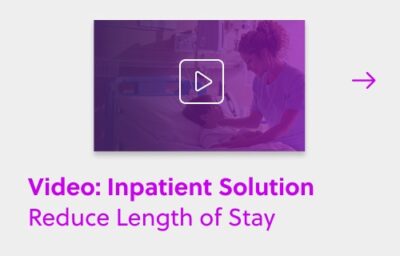By David Atashroo, MD
I recently met with a number of surgeons from across various specialties to discuss the problems we have scheduling OR time and what can be done about it.
It’s ironic – and more than a little frustrating – that at a time when hospitals are desperately in need of surgical revenue, surgeons are reporting difficulty scheduling surgeries because of inefficient, manual processes for reserving OR time.
“I’m actually being encumbered by the fact that I can’t get people into the operating room efficiently,” said Peter Caravella, MD, a general surgeon and owner of Las Vegas Surgical Associates in Nevada. “Sometimes, they’re going at 5:00, 6:00, 7:00 at night, and that doesn’t help build a good practice.”
Surgical procedures account for much of a healthcare system’s revenues and any decline in those revenues reverberates throughout the system. The losses have been made particularly acute by the staffing shortages and safety precautions which caused many hospitals to temporarily close ORs during the Covid-19 pandemic, creating a backlog of cases. The more recent threat, however, is the elimination of departments and services and even the closing of entire hospitals, with the subsequent loss of their ORs.
For these reasons, the pressure is on healthcare systems to improve surgical revenues. In a 2022 survey by The Health Management Academy (HMA), 76% of executives said increasing surgical revenue is a priority and half said they plan to increase investments across their surgical services in the next two years.
Eliminating inefficient processes
Increasing revenue will require improving the way ORs are scheduled. While surgical equipment and techniques have become more efficient and sophisticated, the process of scheduling surgery in the appropriately equipped theater has not.
“One of the most important lifelines of a hospital health system, which is keeping the OR as busy as possible, is really bogged down by 1950s and 1960s technology,” said David Rivadeneira, MD, a colon and rectal surgeon in Woodbury, N.Y.
Surgeons describe time-consuming, back-and-forth phone calls and faxes between their schedulers and those at the hospital.
“You book your case; you send your slip in via fax or email orders. A lot of times our office has to call the hospital to talk to a scheduling department. This is all very inefficient. We’re also paying our medical assistants, our staff to do all this — it’s really a big waste of time and money,” said Matthew Schultzel, DO, a general surgeon in San Diego.
Mark Gonzalgo, MD, executive director for Perioperative Surgical Services at the University of Miami Health System, agreed: “In terms of operational inefficiencies, a lot of it relates to the manual processes involved with perioperative surgical services, whether it’s scheduling block time, or releasing it, or block reallocation. We’ve found that it takes quite a bit of people power in order to properly accommodate not only the needs of surgeons, but also the needs of patients and institutional needs.”
Inefficient scheduling results in ORs sitting empty, canceled surgeries, non-robotic surgeries scheduled in robot-equipped rooms and the postponement of other procedures because robot-equipped ORs aren’t available. In the HMA survey, 71% of healthcare system executives reported their OR time is not optimally used.
Difficulties scheduling surgeries is also hard on patients. Delaying and rescheduling surgeries due to a lack of OR access can hurt patient care. In some cases, patients faced with a delay will switch to another surgeon who can do the operation sooner.
“If an institution has processes in place that accommodate the patient’s specific needs to get their surgeries done in an appropriate amount of time, without any delay, that can have a positive impact on the patient experience and overall quality of care,” said Gonzalgo.
Benefits of OR automation
Ninety-five percent of health system executives desire more automation and less reliance on manual OR processes, according to the HMA survey. Hospitals that do automate their OR scheduling to make it easier to book procedures are likely to see more business from surgeons eager to maximize their productivity and address their backlogs of cases.
“Surgeons typically don’t want to sit around and wait; they only get paid when they’re operating,” Caravella said. “We need to get in and out of the operating room in an efficient fashion. And the surgeons will migrate to the hospitals and facilities that have the best operational efficiencies.”
Rivadeneira said surgeons will gravitate toward the hospitals where they can schedule procedures more easily: “When surgeons see that scheduling is improved by 20%, 30%, 40%, and that they’re able to get their robotic cases in, I think you’ll see a significant increase of cases into that hospital.”
Preserving personal time
Surgeons have personal, as well as professional, reasons for favoring OR automation. Like everyone else, they value time off that they can spend with family, pursuing hobbies, or simply relaxing.
“I want to get out of the hospital as soon as I can. I want to get in; I want to operate; I want to get to my office; and then I want to get home. I don’t really have time to dilly dally and walk around the hospital,” said Caravella.
“I want a program that can help me make my life better. Because if my life’s better, I’m going to make my patients’ lives better and be able to offer better care for my patients,” said Eugene Dickens, MD, a general surgeon in Tulsa, Okla.
Improved patient care, increased surgical revenue and busier, more productive surgeons – it’s all possible with automated scheduling of OR time.
David Atashroo, MD, is Managing Director of Surgery & Perioperative Business at Qventus, the leading provider of AI-powered software for care operations automation.


